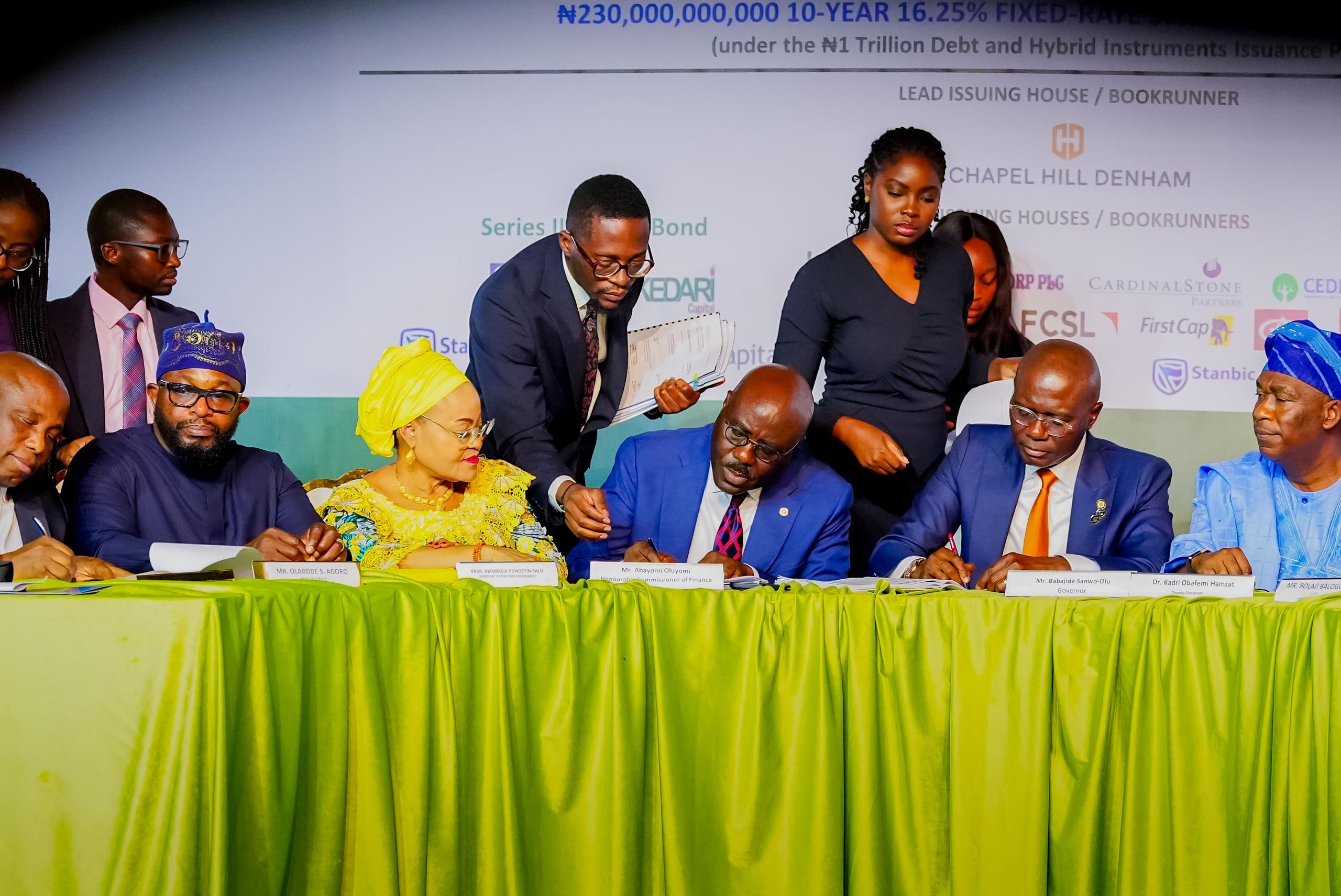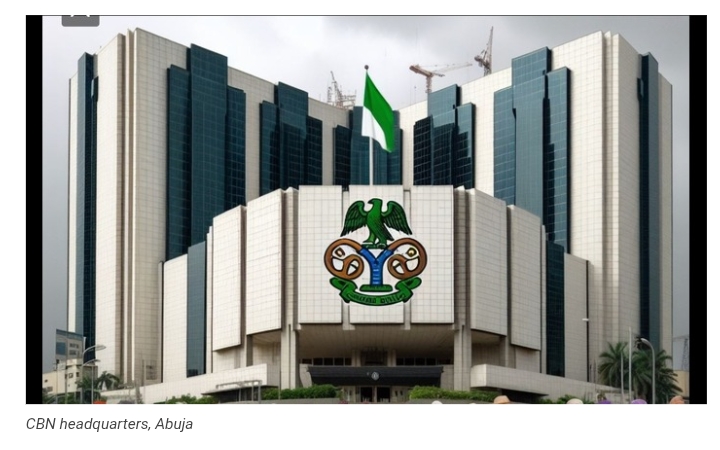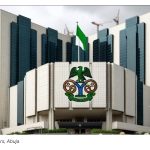Economy
Tinubu Signs Investments and Securities Act 2025 into Law

By Aduragbemi Omiyale
President Bola Tinubu has signed the Investments and Securities Act (ISA) 2025 into law, repealing the Investments and Securities Act No. 29 of 2007
The enactment of the ISA 2025 reaffirms the authority of the Securities and Exchange Commission (SEC) as the apex regulatory authority of the Nigerian capital market. The new Act also introduces transformative provisions to further align Nigeria’s market operations with international best practices.
It strengthens the legal framework of the Nigerian capital market, enhances investor protection, and introduces critical reforms to promote market integrity, transparency, and sustainable growth.
The Director-General of the SEC, Mr Emomotimi Agama, lauded the President’s assent as a transformative step for the capital market.
“The ISA 2025 reflects our commitment to building a dynamic, inclusive, and resilient capital market. By addressing regulatory gaps and introducing forward-looking provisions, the new Act empowers the SEC to foster innovation, protect investors more efficiently and reposition Nigeria as a competitive destination for local and foreign investments.
“We commend all stakeholders within and outside the capital market community for their unwavering solidarity towards the achievement of this historic milestone and solicit their continued collaboration in respect of the effective implementation of the ISA 2025 for the benefit of our economy,” he stated.
Business Post reports that the Act enhances the regulatory powers of the SEC in a manner comparable with benchmark global securities regulators. These enhanced powers and functions ensure full conformity with the requirements of IOSCO’s Enhanced Multilateral Memorandum of Understanding (EMMoU), enabling the SEC retain its Signatory A status and enhancing the overall attractiveness of the Nigerian capital market.
Other notable provisions of the ISA 2025 include:
Classification of Exchanges and inclusion of provisions on Financial Market Infrastructures– The Act classifies Securities Exchanges into Composite and Non-composite Exchanges. A Composite Exchange is one in which all categories of securities and products can be listed and traded, while a Non-composite Exchange focuses on a singular type of security or product. There are also new provisions on Financial Market Infrastructures such as Central Counter Parties, Clearing Houses and Trade Depositories.
Expansion of the definition and Understanding of Securities – The Act explicitly recognises virtual/digital assets and investment contracts as securities and brings Virtual Asset Service Providers (VASPs), Digital Asset Operators (DAOPs) and Digital Asset Exchanges under the SEC’s regulatory purview.
Comprehensive Insolvency Provisions for Financial Market Infrastructures – The Act introduces provisions that exempt transactions facilitated through or otherwise involving Financial Market Infrastructures from the application of general insolvency laws.
Management of Systemic Risk – The Act introduces provisions for the monitoring, management and mitigation of systemic risk in the Nigerian capital market.
Expansion of the Category of Issuers to the Public– The Act expands the categories of issuers, as a key step towards the introduction of a wide range of innovative products and offerings as well as the facilitation of “commercial and investment business activities”, subject to the approval of the Commission and other controls stipulated in the Act.
Legal Framework for Commodities Exchanges – The Act contains a new Part which provides for the regulation of Commodities Exchanges and Warehouse Receipts. These provisions are essential to allow for the development of the entire gamut of the Commodities ecosystem.
Issuance of Securities by Sub-Nationals and their Agencies– Salient provisions of the Act address existing restrictions in respect of raising of funds from the capital market by Sub-Nationals to allow for greater flexibility in this regard.
Transparency in Securities Transactions – The Act introduces the mandatory use of Legal Entity Identifiers (LEIs) by participants in capital market transactions. This stipulation is designed to improve transparency in the conduct of securities transactions.
Enforcement Against Illegal Investment Schemes – The Act expressly prohibits Ponzi Schemes and other unlawful investment schemes while prescribing stringent jail terms and other sanctions for the promoters of such schemes.
Strengthening the Investments and Securities Tribunal– The Act amends some key provisions in the repealed ISA 2007 pertaining to the Composition of the Tribunal, constitution of the Tribunal, qualification and appointment of the Chief Registrar as well as the jurisdiction of the Tribunal to enhance the ability of the Tribunal to optimally discharge its mandate.
Economy
Lagos Lists N230bn Series 4 10-Year Bond on Stock Exchange

By Aduragbemi Omiyale
The N230 billion 10-year bond issued to investors by the Lagos State government has been listed on the Nigerian Exchange (NGX) Limited.
It was the Series 4 of the state government’s N1 trillion Debt and Hybrid Instruments Issuance Programme, which was sold at a coupon rate of 16.25 per cent.
It was offered for sale to bondholders in November 2025, with Chapel Hill Denham Advisory Limited as the leading issuing house and bookrunner.
The joint issuing houses and bookrunners were Asset & Resources Management Limited, Capital Bancorp Plc, Cardinal Stone Partners Limited, Cedrus Capital Limited, Comercio Partners Capital Limited, Cordros Advisory Services Limited, Coronation Merchant Bank Limited, Dynamic Portfolio Limited, FCMB Capital Markets Limited, FCSL Asset Management Company Limited, FirstCap Limited, G.A. Capital Limited, LeadCapital Plc, Light House Capital Limited, Phoenix Global Capital Markets Limited, Quantum Zenith Capital and Investments Limited, Radix Capital Partners Limited, SFS Financial Services Limited, Stanbic IBTC Capital Limited, United Capital Plc, and, Vetiva Advisory Services Limited.
The debt instruments are callable at par after 60 months, on any coupon payment date, subject to the issuer having obtained prior regulatory approvals and upon issuance of the requisite notice to bondholders.
Business Post reports that the bond was sold at a unit price of N1,000, with the interest to be paid to investors on every May 20 and November 20 until maturity.
According to the Governor of Lagos State, Mr Babajide Sanwo-Olu, proceeds from the exercise would be used for critical infrastructure in transportation, housing, the environment, healthcare, education, urban renewal, and the provision of other sustainable infrastructure that would serve the future needs of the state.
The listing of the debt instrument on the stock exchange today, Monday, February 9, 2026, allows investors to trade the bond at the secondary market.
Economy
CBN to Begin 304th MPC Meeting February 23

By Adedapo Adesanya
The Central Bank of Nigeria (CBN) has announced plans to hold its 304th Monetary Policy Committee (MPC) meeting on Monday, February 23 and Tuesday, February 24, 2026.
This information was disclosed in a circular published on the apex bank’s official website on Monday. This will be the first meeting of 2026.
The gathering comes amid sustained efforts by the CBN to rein in inflation, stabilise the foreign exchange market, and strengthen macroeconomic conditions.
At its last MPC meeting in November 2025, the central bank retained the Monetary Policy Rate (MPR) at 27 per cent, maintaining its restrictive posture in a bid to curb inflationary pressures and stabilise the foreign exchange (FX) market.
The MPC is one of the bank’s highest policy-making bodies, responsible for formulating monetary and credit policies aimed at ensuring price stability.
Through key instruments such as the MPR, Cash Reserve Ratio (CRR), and Liquidity Ratio (LR), the committee guides interest rate conditions and overall monetary direction in the economy.
Comprising the CBN Governor, Deputy Governors, Board members, and appointed external members, the committee meets periodically to review critical economic indicators, including inflation, gross domestic product, and exchange rate developments, before taking policy decisions.
The apex bank outlined the timetable and venue in its official notice.
“The 304th meeting of the Monetary Policy Committee (MPC) is scheduled to hold as follows,” the CBN said.
“Day 1: Monday, February 23, 2026 – Time: 10.00 a.m.”
“Day 2: Tuesday, February 24, 2026 – Time: 8.00 a.m.”
According to the circular, the meeting will take place at the MPC Meeting Room on the 11th floor of the CBN Head Office in Abuja.
Economy
NGX Lifts Suspension on Fortis Global Insurance

By Aduragbemi Omiyale
The suspension placed on trading in the shares of Fortis Global Insurance Plc has been lifted by the Nigerian Exchange (NGX) Limited after six years.
The embargo arose from the company’s violation of Rule 3.1: Rules for Filing of Accounts and Treatment of Default Filing (Default Filing Rules).
The underwriting firm, formerly known as Standard Alliance Insurance Plc, was suspended by the exchange on July 2, 2019, after the board failed to file the necessary financial statements.
Rule 3.1 provides that if an issuer fails to file the relevant accounts by the expiration of the cure period, the exchange will: a) send to the issuer a second filing deficiency notification within two business days after the end of the cure period, b) suspend trading in the issuer’s securities, and c) notify the Securities and Exchange Commission (SEC) and the market within 24 hours of the suspension.
A notice from the bourse last week disclosed that the company has now filed all outstanding financial statements due to the NGX, and in view of this, the embargo has been lifted pursuant to Rule 3.3 of the Default Filing Rules.
This section states that, “The suspension of trading in the issuer’s securities shall be lifted upon submission of the relevant accounts, provided the exchange is satisfied that the accounts comply with all applicable rules of the exchange.
“The exchange shall thereafter also announce through the medium by which the public and the SEC were initially notified of the suspension, that the suspension has been lifted.”
The bourse informed trading license holders and the investing public “that the suspension placed on trading on the shares of Fortis Global Insurance was lifted on Wednesday, February 4, 2026.”
-

 Feature/OPED6 years ago
Feature/OPED6 years agoDavos was Different this year
-
Travel/Tourism9 years ago
Lagos Seals Western Lodge Hotel In Ikorodu
-

 Showbiz3 years ago
Showbiz3 years agoEstranged Lover Releases Videos of Empress Njamah Bathing
-

 Banking8 years ago
Banking8 years agoSort Codes of GTBank Branches in Nigeria
-

 Economy3 years ago
Economy3 years agoSubsidy Removal: CNG at N130 Per Litre Cheaper Than Petrol—IPMAN
-

 Banking3 years ago
Banking3 years agoSort Codes of UBA Branches in Nigeria
-

 Banking3 years ago
Banking3 years agoFirst Bank Announces Planned Downtime
-

 Sports3 years ago
Sports3 years agoHighest Paid Nigerian Footballer – How Much Do Nigerian Footballers Earn














